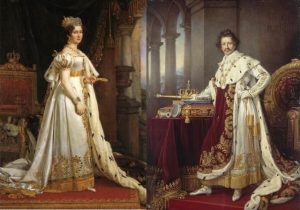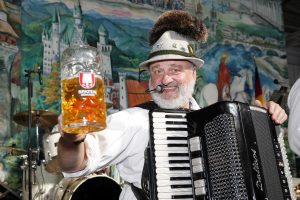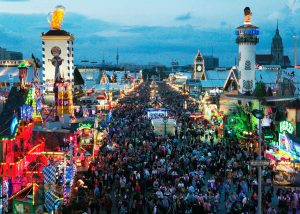oktoberfest
 With a strong family history originating in Germany, for both my family and my husband’s family, German history has always been of interest to me. Most people know that Oktoberfest originated in Germany, but I don’t think that very many really know what Oktoberfest is all about. Everyone knows its all about a German party, and that is true, but why would there be a big party from late September to the first Sunday in October every year?
With a strong family history originating in Germany, for both my family and my husband’s family, German history has always been of interest to me. Most people know that Oktoberfest originated in Germany, but I don’t think that very many really know what Oktoberfest is all about. Everyone knows its all about a German party, and that is true, but why would there be a big party from late September to the first Sunday in October every year?
It all started with a wedding. The Bavarian Crown Prince Ludwig I, who would later become King Ludwig I of Bavaria, married Princess Therese von Sachsen-Hildburghausen. Bavaria would later become a state in Germany. The Bavarian royal family decided to make this a big event, and so they invited the citizens  of Munich to attend the festivities. The festivities were held on the fields in front of the city gates, and in honor of the new crown princess, the fields were renamed Theresienwiese, which means Therese’s fields. That being a really long name, the locals have since abbreviated it to the Wies’n. The celebration was quite grand, and concluded with horse races in the presence of the royal family. The people were so happy with this chosen couple, that the event was one filled with joy and happiness. The wedding was celebrated in varying forms across all of Bavaria. Apparently the festivities were so much fun, that the royal family decided that it needed to be an annual event, including the horse races.
of Munich to attend the festivities. The festivities were held on the fields in front of the city gates, and in honor of the new crown princess, the fields were renamed Theresienwiese, which means Therese’s fields. That being a really long name, the locals have since abbreviated it to the Wies’n. The celebration was quite grand, and concluded with horse races in the presence of the royal family. The people were so happy with this chosen couple, that the event was one filled with joy and happiness. The wedding was celebrated in varying forms across all of Bavaria. Apparently the festivities were so much fun, that the royal family decided that it needed to be an annual event, including the horse races.
The decision to repeat the festivities and the horse races in the subsequent  year gave rise to the tradition of the annual Oktoberfest, which now begins in late September and lasts until the first Sunday in October. Alcohol consumption is an important part of the modern festival, and more than 1 million gallons of beer are consumed annually at Oktoberfest. The royal wedding drew 40,000 people, probably a large amount for the time, but that paled in comparison to the 6.4 million people who celebrated the event in 1997. The horse races were eventually stopped, but held once more in 1811. Many other characteristics of the early Oktoberfest traditions have been retained in Munich to this day. So where did the name come from? Well, it is derived from Theresienwiese…or rather the shortened name, Wies’n which apparently translates…Oktoberfest.
year gave rise to the tradition of the annual Oktoberfest, which now begins in late September and lasts until the first Sunday in October. Alcohol consumption is an important part of the modern festival, and more than 1 million gallons of beer are consumed annually at Oktoberfest. The royal wedding drew 40,000 people, probably a large amount for the time, but that paled in comparison to the 6.4 million people who celebrated the event in 1997. The horse races were eventually stopped, but held once more in 1811. Many other characteristics of the early Oktoberfest traditions have been retained in Munich to this day. So where did the name come from? Well, it is derived from Theresienwiese…or rather the shortened name, Wies’n which apparently translates…Oktoberfest.

